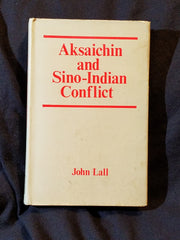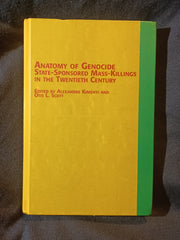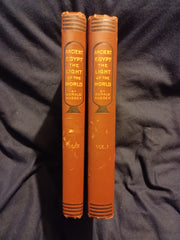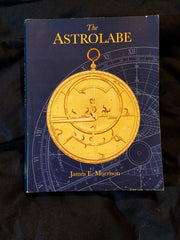Human Nature in Politics by Graham Wallas. Inscribed in ink, "A.N.H./ from/ Graham Wallas
Human Nature in Politics by Graham Wallas. Houghton Mifflin Company. 1909. Inscribed in ink, "A.N.H./ from/ Graham Wallas/ May 1910-" also, carefully written in light pencil next to the ink inscription apparently in the same hand, "(to Prof/ Arthur Holcombe)" on the first blank page. 4 pages of typewritten notes, actually, mostly questions with some handwritten notes, (a professor preparing his lessons from the book?) laid in. 5 1/2" x 8 1/4" xvi plus 302 pages Hardcover with no dust jacket. Gilt lettering on spine is somewhat faded, but still quite legible. Moderate cover wear. An old bookseller's pencil price on the first blank page. Pages are very lightly tanned. I see no other previous owner markings. No tears, folds or creases to pages. Binding is tight with no looseness to pages. Not ex-library, not remaindered and not a facsimile reprint. For sale by Jon Wobber, bookseller since 1978. IJ21a
"Graham Wallas (31 May 1858 – 9 August 1932) was an English socialist, social psychologist, educationalist, a leader of the Fabian Society and a co-founder of the London School of Economics. Wallas argued in The Great Society: A Psychological Analysis (1914) that a social-psychological analysis could explain the problems created by the impact of the Industrial Revolution on modern society. He contrasted the role of nature and nurture in modern society, concluded that humanity must depend largely on the improvements in nurture and put his faith in the development of stronger international operation." - wikipedia
"Arthur Norman Holcombe (November 3, 1884 – December 9, 1977) was an American political scientist and educator who taught at Harvard University from 1910 until his retirement in 1955. He was known for his studies of government structure. Holcombe split his career between public service and teaching. He was president of the American Political Science Association in 1936. He was credited with establishing political philosophy and theory as basic disciplines in Harvard University’s government curriculum, where he was Professor of government, from 1910 to 1955. Among his students were John F. Kennedy, Henry Kissinger and Henry Cabot Lodge.[2] In 1949, he assisted Chiang Kai-shek in the drafting of a constitution for the Republic of China. In 1955, he retired as Eaton Professor of the Sciences of Government to become chairman of the committee to Study the Organization of Peace, an affiliate of the American Association for the United Nations." - wikipedia
A wonderful association. It is possible this particular copy provided ideas that influenced major political figures in sixties and seventies.
"Graham Wallas (31 May 1858 – 9 August 1932) was an English socialist, social psychologist, educationalist, a leader of the Fabian Society and a co-founder of the London School of Economics. Wallas argued in The Great Society: A Psychological Analysis (1914) that a social-psychological analysis could explain the problems created by the impact of the Industrial Revolution on modern society. He contrasted the role of nature and nurture in modern society, concluded that humanity must depend largely on the improvements in nurture and put his faith in the development of stronger international operation." - wikipedia
"Arthur Norman Holcombe (November 3, 1884 – December 9, 1977) was an American political scientist and educator who taught at Harvard University from 1910 until his retirement in 1955. He was known for his studies of government structure. Holcombe split his career between public service and teaching. He was president of the American Political Science Association in 1936. He was credited with establishing political philosophy and theory as basic disciplines in Harvard University’s government curriculum, where he was Professor of government, from 1910 to 1955. Among his students were John F. Kennedy, Henry Kissinger and Henry Cabot Lodge.[2] In 1949, he assisted Chiang Kai-shek in the drafting of a constitution for the Republic of China. In 1955, he retired as Eaton Professor of the Sciences of Government to become chairman of the committee to Study the Organization of Peace, an affiliate of the American Association for the United Nations." - wikipedia
A wonderful association. It is possible this particular copy provided ideas that influenced major political figures in sixties and seventies.










